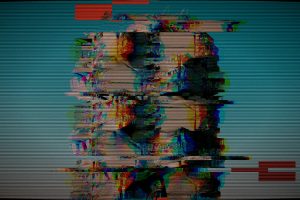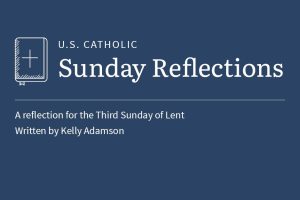The rise of generative AI confronts us with any number of ethical questions. The issue that gets the most attention is understandably the ability to generate false information. Already, artificial image generation makes it easy for almost anyone to create fake images and transmit them to a large audience. The cost of generating large amounts of false information has fallen to almost zero. In a society where people already tend to have their own “truths” and tend to get virtually all their information through online sources curated via algorithms, AI accelerates our already enormous problem of misinformation.
But let’s think about a deeper question concerning knowledge: Does “more” always equal “better”? AI is capable of both combing through far more material than any person can and generating quantitatively more output far more quickly. It took me numerous hours to draft this article; AI can write it in seconds! But do we need more information output in today’s world? And does more information input guarantee a better output?
I think the answer to both these questions is mostly no. In many areas, expert summaries and syntheses remain “better” than AI, and to a substantial extent, AI is reliant on the existence of these prior summaries. A recent New York Times article called AI “Wikipedia’s moment of truth,” explaining how the nonprofit is trying to interface with AI companies to make the encyclopedia even more accurate, rather than simply allowing chatbots to exploit all the human work that has gone into its articles. In theology, for example, an expert’s encyclopedia entry will be better than an AI-generated essay (as I tell my students all the time).
Of course, AI will be very useful. One economist compared the calculating ability of Microsoft Excel to that of the ancient scribes; the unique intelligence of those scribes made them among the most valuable people in ancient society, but now Excel makes it possible to run complex calculations that no scribe, no matter how skillful, could perform. Similarly, chess-playing computers can now beat any human player at the game, because they are simply able to calculate future possibilities beyond any capacity that a human can acquire. The most rapid professional adoption of AI has been for computer coding, which for the last couple of decades had been a very valuable human skill.
In these cases, AI’s capacity for “more” can generate “better.” But to discern when this holds true, we need a further distinction: between “knowledge” and “calculation.” The term intelligence is misleadingly general. Catholic philosopher Charles Taylor argues that our human capacity for morality rests on a distinction between “simple weighing”—that is, calculating—and what he calls “strong evaluation.”
Like other philosophers, Taylor insists that utilitarianism, which reduces moral knowledge to the calculation of costs and benefits, confuses quantitative with qualitative distinctions. Qualitative comparisons do not reduce “better” to “more” but instead make distinctions among activities as intrinsically valuable and more human. Jesus clearly believes that helping the suffering, for example, is qualitatively more important than money or precise religious observations. Our moral choices can’t be reduced to quantities of “more” and “less”; thus, moral choices can’t be reduced to calculations.
What does make something “more” or “better”? In the Catholic tradition, the importance of developing virtue—the Greek word is arete, which means, literally, “excellence”—is the most obvious language of “better.” Our moral choices form our characters, and our characters then shape how we see future moral choices. Yes, virtue includes prudence, which is in part a form of calculating how to match means to ends when deciding on a course of action. Yet even prudence, in Catholic theology, is crowned by the gift of wisdom. Virtue and wisdom may well be the terms for distinguishing what AI can’t know from what it can.
Notions of wisdom and virtue exist in nearly all human cultural traditions. Ordinarily, these concepts involve studying information in the form of text—but developing wisdom and virtue also requires apprenticeship to masters, internal strength, and a lifetime of real-world experience with other people; a machine does not have these experiences nor is it likely to have them. In Catholicism, the wisdom and virtue common to all humanity are further perfected by the light of God’s own mind and heart, most supremely in Jesus, which enables us to see through the layers of darkness that entangle human minds and hearts. Machines may be able to process texts to know all there is to know about Jesus—but they cannot know Jesus.
How do we know Jesus? Consider the sacraments: Here we meet Christ and receive grace for true wisdom. This sort of “knowing” is not quantitative. It doesn’t come from simply receiving the sacraments “more” (a mistake of the pious) or even from simply knowing “more about” the sacraments (a mistake of the theologians). It comes rather from a deeper participation in an activity.
We also know Jesus through truly loving others. Knowing God is similar to the intrinsic value of marriage, in which we come to know someone more deeply (i.e., better) each day. Along these same lines, a 2023 report from the AI Research group convened by the Holy See insists on the language of “encounter.” Authentic encounters require mutuality and vulnerability, for example, and the report emphasizes that real human encounter involves seeing each other, rather than hiding; the necessarily “black-box” nature of AI makes it hard to imagine that transparent encounters could really happen when humans interact with AI. Thus, the research group concluded, AI is only “seemingly personal.”
Comparing AI to the “intelligence” of the computer spreadsheet is very helpful. AI, much like a spreadsheet, will help us get some things done in our world more quickly, more easily, and more accurately. However, we must remember that AI cannot be wise or make us wise. It can only make us less wise, if we forget what human virtue and wisdom really are: the “knowing” found in encounters we only have face-to-face with others—and ultimately, with God.
This article also appears in the April 2024 issue of U.S. Catholic (Vol. 89, No. 4, pages 40-41). Click here to subscribe to the magazine.
Image: iStock















Add comment